6 Great Alternatives to Amazon for Ecommerce Businesses
Regardless of how you feel about the company personally or professionally, Amazon is too prominent to ignore. For some ecommerce businesses, selling on Amazon is simply a must.
But it’s definitely—DEFINITELY—not for everyone. It’s expensive, confusing, and competitive. Depending on what you sell and what your margins look like, it could be a costly decision.

That’s why we’ve compiled a list of six alternative online marketplaces—three general, three niche. Although none of these comes close to matching Amazon’s reach, you can certainly make a living off of ‘em.
But first, let’s talk a bit more about why it’s important for your ecommerce business to try alternatives to Amazon.
Why alternatives to Amazon are important
It goes without saying that the main reason ecommerce businesses like yours are attracted to Amazon is the audience size. Every month, hundreds of millions of people across the globe, many of whom are in the US, use Amazon to get everything they need—from furniture to electronics, from groceries to clothes.
No matter what industry you’re in, there are people turning to Amazon to find the products you sell. That alone is often enough for a small ecommerce business to become convinced that they have to sell on Amazon.
But here’s the kicker: doing so requires Olympic-caliber mental gymnastics and a substantial amount of cheddar.

There are two types of Amazon seller accounts you can choose from: individual and professional. Note that I use the word “choose” lightly—you must use the professional account plan if you sell more than 40 products per month. Considering that the professional plan comes with a $39.99 monthly subscription fee, that kinda sucks.
There’s no monthly fee for the individual account plan. However, every time someone buys a product of yours, you have to cough up a $0.99 item fee, a referral fee, and potentially a variable closing fee. As much as I’d like to succinctly discuss the referral fee, I can’t—the system is insanely complicated. Take a look for yourself. The variable closing fee is a flat $1.80, and it only applies to products under the Media category: books, movies, music, video games, etc.
If you do go with the professional plan, you’re only spared the $0.99 item fee. You’ll still have to pay the referral fee and (if it applies to your products) the variable closing fee on top of the cost of your monthly seller subscription.
Basically, selling on Amazon is expensive and confusing.
Not to mention competitive. There are over two million sellers on Amazon. And although they’re spread out over dozens of product categories, it’s more than likely that you’ll be going up against several competitors every time someone searches for your products. Sure—there are steps you can take to optimize your listings and give yourself a better chance of showing up at the top of the search results and winning the buy box. That’s a lot of additional work, though.
So that’s why we’re here today: to talk about the other options at your disposal. Although each of these marketplaces is unique, they’re united in that they’re all cheaper, simpler, and/or less competitive than Amazon.
Let’s dive in!
Amazon alternatives for all sellers
We’ll kick off by looking into three major ecommerce marketplaces that sellers of all kinds can use to reach more online shoppers. First up: the second-most popular place among consumers to begin a product search.
1. Google Shopping
Unless there’s a niche marketplace that’s perfect for reaching your target demographic—perhaps it’s one of the three we’ll discuss later in this post—Google Shopping is the alternative to Amazon we most strongly recommend to ecommerce businesses.
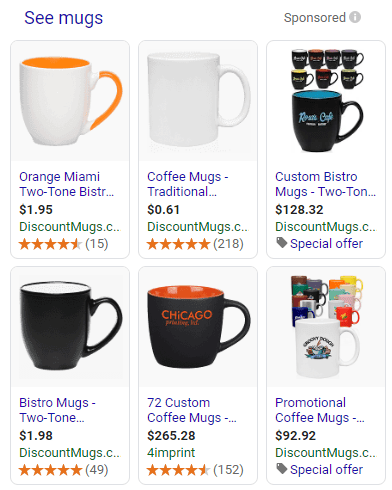
Google Shopping is a subset of the Google Search Network that’s reserved exclusively for products. Every month, roughly 100 million US consumers use it. Although Amazon is more popular among consumers for making an initial product search, the average Google Shopping conversion window is almost a full week shorter than the average Amazon conversion window.
(Conversion window refers to the amount of time between an initial click on your product listing and a final purchase. Basically, Google Shopping users convert faster than Amazon users.)
There are two ways to get your products in front of the millions of consumers who turn to Google Shopping every day: by adding structured data markup to your ecommerce website or by uploading a product data feed to Google Merchant Center (GMC).
We strongly recommend the latter. If you advertise your products on Google Shopping via structured data markup, you have to wait for Google to crawl your website before users can see your most up-to-date product information. Alternatively, if you advertise your products via GMC, Google can update your product information in real time.
Up until recently, GMC was reserved for ecommerce businesses with Google Ads accounts. Fortunately, this is no longer the case. Even if you’re not advertising through Google Ads, you can use GMC to make sure your product information is always as up-to-date as possible.
Harnessing the power of GMC requires uploading and managing a product data feed—a spreadsheet that organizes all of your product information in such a way that Google can easily crawl it and give users a complete picture of what you’re selling.

Key perk: Google Shopping doesn’t require you to pay for listings—no matter how many products you want to advertise. As is the case when you’re running standard search ads, you’re only charged when someone clicks on your ad. (Bing Shopping offers this same key perk. And if you’re advertising on Google, don’t forget to advertise for ecommerce on Bing, too.)
New to Google Shopping? We’ve got you covered. Download our free guide to building successful campaigns and start winning new customers today!
2. Walmart Marketplace
Walmart, the world’s largest retailer and the largest employer in the US, is most commonly known for its immense brick-and-mortar presence—bolstered by more than 5,000 physical store locations in the US alone. Recently, though, they’ve been seriously stepping up their digital game.
100 million organic visitors land on Walmart’s website every month. Plus, thanks to a 43% increase in online sales in 2018, Walmart commands just under 5% of the American ecommerce market—making it the third-largest online retailer in the US behind Amazon and eBay.
How can we explain Walmart’s formidable ecommerce presence in an era when brick-and-mortar stores are supposedly going extinct?
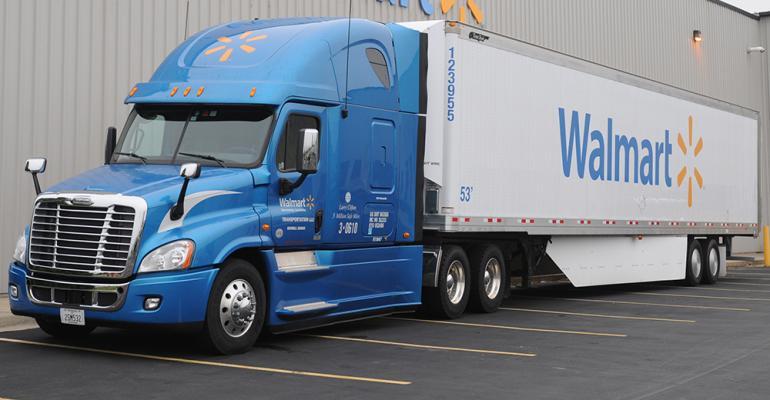
Via Supermarket News.
In part, says former CTO Jeremy King, because Walmart is using their thousands of physical store locations to their advantage. 90% of the US population lives within 10 miles of a Walmart store. By using those stores to double as warehouses, Walmart makes it easy for themselves to ship products fast. That’s why they’re able to offer two-day free shipping to everyone—whereas Amazon charges consumers a premium for that.
Key perk: The free Walmart seller account enables you to sell as much as you’d like. In fact, the free Walmart seller account is the only Walmart seller account. You don’t have to pay a premium to get extra perks, like you do on Amazon.
Plus, no matter what you sell, the only fee Walmart will ever charge you is the referral fee. Amazon, on the other hand, tacks on extra fees for certain product categories.
3. Bonanza
EcommerceBytes surveys tens of thousands of independent sellers every year to determine how likely they are to recommend particular online marketplaces to their friends. If you average the results from 2013 through 2018, Bonanza is the most highly recommended by sellers.
Bonanza, boasting over 300,000 organic monthly visitors, is built around the idea that marketplaces should help sellers build relationships with loyal customers—rather than render sellers virtually anonymous while simply helping customers find the lowest prices possible.
With a customer marketing tool that allows you to store and filter data regarding past buyers—thus enabling you to segment them into groups and remarket to them—and a seller stats dashboard that gives you a high-level perspective of product performance, Bonanza empowers you with the insights and resources you need to succeed over time.
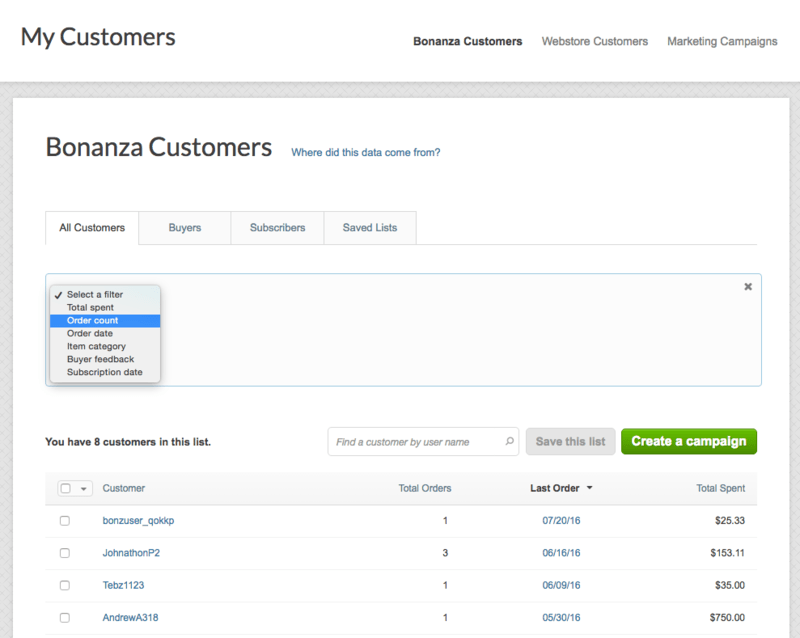
Via Bonanza.
Plus, Bonanza isn’t just another online marketplace that you can sell stuff on—they also offer a website service that enables you to easily build and maintain your own ecommerce site. To name a few of the many benefits:
- No transaction fees
- Free design templates
- Seamless inventory synchronization across Bonanza Marketplace, Etsy, and eBay
Key perk: Bonanza is a pay-per-sale system, so you’re only charged when a customer places an order for your product. The amount of money you pay depends on the final offer value (FOV) of whatever you sold. FOV is the price of the product plus any shipping costs over $10. If you make a sale with FOV under $500, Bonanza takes 3.5%. If it’s over $500, they take 3.5% plus 1.5% of the amount over $500.
Amazon alternatives for niche sellers
Google Shopping, Walmart Marketplace, and Bonanza are great alternatives to Amazon because they enable you to reach audiences looking for everything from coffee tables to bicycles. But if you find it advantageous to sell your products on marketplaces geared specifically towards your target customer, we’ve got a couple of those for you, too.
1. Newegg (electronics)
Founded in 2000 as a first-party seller website and re-launched in 2010 as a third-party marketplace, Newegg is a one-stop shop for consumer electronics and computer hardware.
It connects you to over 10 million organic monthly visitors across dozens of countries, and although it now sells stuff like fitness gear and car seats, Newegg remains a go-to marketplace for tech-related products. If that’s your speciality, Newegg is an ideal alternative to Amazon.

One of their unique value propositions is that they facilitate both B2C and B2B. With Newegg Business, you can sell products in bulk to tens of thousands of businesses the world over.
Plus, in step with Amazon, they offer an order fulfillment service called Shipped by Newegg (SBN). If you lack the time, resources, or physical space to ship orders to customers yourself, you can send products to a Newegg fulfillment center and let their team take care of the picking, packing, and shipping processes for you.
Key perk: With the free Newegg seller membership, you can list up to 5,000 unique products and make as many sales as you’d like. Plus, you get complete access to product data feed management, the ability to promote your brand and products, and the right to use SBN.
Best of all: Commission fees cap at 15%, and some go as low as 8%.
2. Zibbet (art)
No guide to Amazon alternatives is complete without a specialized option for artists. If you create original pieces art (or sell online on behalf of artists), Zibbet—with an admittedly small organic monthly audience of about 13,000—is a great option.
The awesome thing about Zibbet is that it doubles as both a third-party marketplace and a centralized platform that enables you to sell on your own website as well as Etsy. Every time you make a sale on Zibbet Marketplace, your inventory is automatically updated in real time across your website and Etsy. Plus, you can manage and fulfill orders from all channels within the centralized Zibbet platform.
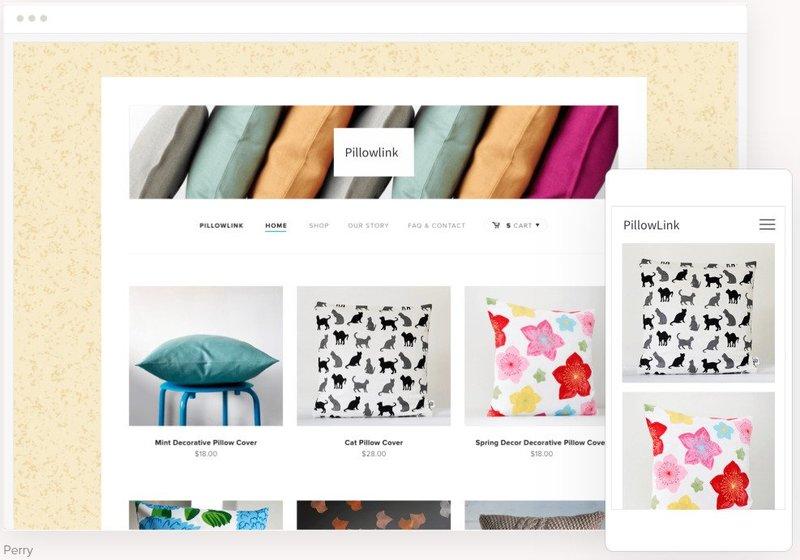
Via Zibbet.
You can list as many or as few products as you want without worrying about additional fees. You have the freedom to customize the website you created through Zibbet in order to match your unique brand aesthetic. And, you’re encouraged to run promotions and create custom coupon codes to reward your most loyal customers.
Key perk: Zibbet doesn’t charge you a nickel for listing a product or for making a sale. The only fees you’ll ever pay cover the costs of your monthly memberships on each channel (Zibbet Marketplace, Etsy, and your custom website).
Amazingly, each channel only costs $5/mo. You’re looking at a maximum monthly fee of $15.
3. Reverb (music equipment)
We’ll wrap up our guide to Amazon alternatives by looking at a marketplace dedicated solely to connecting buyers and sellers of instruments and other music equipment: Reverb.

You can list as many products as you want for Reverb’s 3 million organic monthly visitors to peruse—you won’t be charged for any of those listings. In fact, the only fees Reverb sellers ever need to cough up are the 3.5% sales commission fee and the 2.7% transaction fee. Plus, that commission fee caps at $350. So, even if you sell something for over $10,000, you’ll only owe $350 in commission.
I think that caveat in particular speaks to the quality of the team over at Reverb. Nobody would bat an eye if the commission fee jumped to 5% or 8% for sales over a certain price. Nonetheless, Reverb is committed to helping sellers get what they’re owed.
Although Reverb doesn’t run on an auction system—whenever you list a product for sale, you ask for a set price—prospective buyers have the option to name their own price. You, of course, can make as many counter-offers as you’d like.
Key perk: Reverb hooks up their sellers with some awesome resources. Thanks to their partnership with the US Postal Service, you get a nice discount on shipping labels. If something goes wrong when you’re shipping a product to a customer, they’ll connect you with a fellow musician to find a solution. And, best of all, they have all kinds of guides that walk you through the processes for shipping different instruments.
Alternatives to Amazon are out there
Whether you’re a one-person shop or an employee at an ecommerce business, it may feel like Amazon is your only option as far as third-party marketplaces go. But there are so many alternatives for you to explore.
This guide only scratches the surface. Broad sellers and niche sellers alike can find success on tons of less popular ecommerce platforms that charge lower fees and offer more benefits. You just have to look for them.

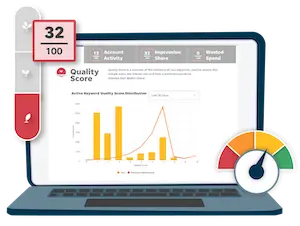







Comments
Please read our Comment Policy before commenting.